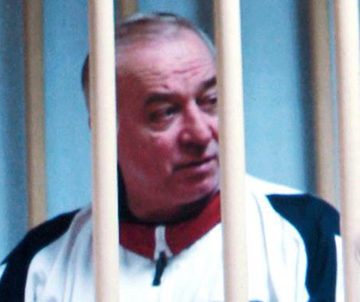SALISBURY, England, (Reuters) – Britain warned Russia yesterday of a robust response if the Kremlin was behind a mysterious illness that has struck down a former double agent convicted of betraying dozens of spies to British intelligence.
Foreign Secretary Boris Johnson named Sergei Skripal, once a colonel in Russia’s GRU military intelligence service, and his daughter Yulia as the two people who were found unconscious on Sunday on a bench outside a shopping centre in southern England.
Skripal, 66, and his 33-year-old daughter were exposed to what police said was an unknown substance in the city of Salisbury. Both are still critically ill in intensive care, police said.
“We don’t know exactly what has taken place in Salisbury, but if it’s as bad as it looks, it is another crime in the litany of crimes that we can lay at Russia’s door,” Johnson told the British parliament.
“It is clear that Russia, I’m afraid, is now in many respects a malign and disruptive force, and the UK is in the lead across the world in trying to counteract that activity.”
Prime Minister Theresa May was briefed at a meeting of the National Security Council on the investigation into the incident, her spokesman said without elaborating.
If Moscow were shown to be behind Skripal’s illness, Johnson said, it would be difficult to see how UK representation could go to the World Cup in Russia in a normal way. A government source said that meant attendance of ministers or dignitaries.
Russian Foreign Ministry spokeswoman Maria Zakharova said Johnson’s comments were “wild”.
A previous British inquiry said President Vladimir Putin probably approved the 2006 murder of ex-KGB agent Alexander Litvinenko with radioactive polonium-210 in London. The Kremlin has repeatedly denied any involvement in Litvinenko’s killing.
Litvinenko, 43, an outspoken critic of Putin who fled Russia for Britain six years before he was poisoned, died after drinking green tea laced with the rare and very potent radioactive isotope at London’s Millennium Hotel.
It took weeks for British doctors to discern the cause of Litvinenko’s illness.
His murder sent Britain’s ties with Russia to what was then a post-Cold War low. Relations suffered further from Russia’s annexation of Crimea and its military backing for Syrian President Bashar al-Assad against rebels trying to topple him.

